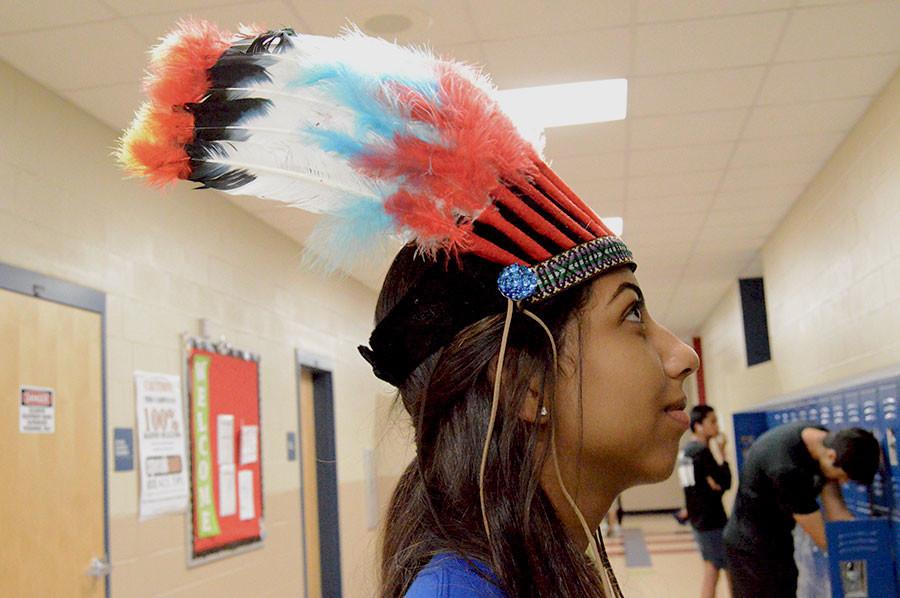CULTURAL APPROPRIATION: LEADING TO UNCULTURED GENERATION?
Students wearing Native American headdresses presents the controversy of cultural appropriation.
November 3, 2015
Cultural appropriation is defined as the adoption of elements from a different culture, often without consent. Members of society frequently adopt parts of another culture for purely aesthetic reasons, ignoring the cultural significance behind it.
The appropriation of cultures arguably devalues them by reducing the cultural object to a cliche, without any significance.
Color Runs are a five-kilometer race in which participants are doused from head to toe in different colors at each kilometer, and have come under criticism for appropriating the Hindu holiday Holi. Color Runs promote healthiness, happiness and individuality, which are beneficial. However, they make no reference to the Hindu holiday from which similarities are drawn. The Hindu prayers, food, and traditions associated with Holi are disregarded during these runs, depriving people of several aspects of Hindu culture.
Music festivals have become aware of the controversy that appropriation creates, and some festivals are taking a stand against appropriation. Osheaga, a music festival in Montreal, has recently banned the use of headdresses at their festival to respect nearby Native American tribes.
Sophomore Amrita Kapat says, “I remember when I was little, my mom used to make me wear an Indian outfit on my birthday and [others] made fun of my attire. But now I see those same people wearing henna.” Kapat points out the hypocrisy in this by saying, “You hated my culture five years ago.”
While largely being viewed as negative, cultural appropriation is not always seen as such. Arguments have been made stating that cultural appropriation is a form of appreciation and should be taken as a compliment.
Junior Keyara Hugee says, “I don’t necessarily think [appropriation] is all bad, because it makes people more aware of other cultures.”
While cultural appropriation offers positive and negative aspects, together they can build up and contribute to the devaluing of various cultures. By learning about and respecting cultures that have been appropriated, awareness can be drawn to diminish this issue.


































